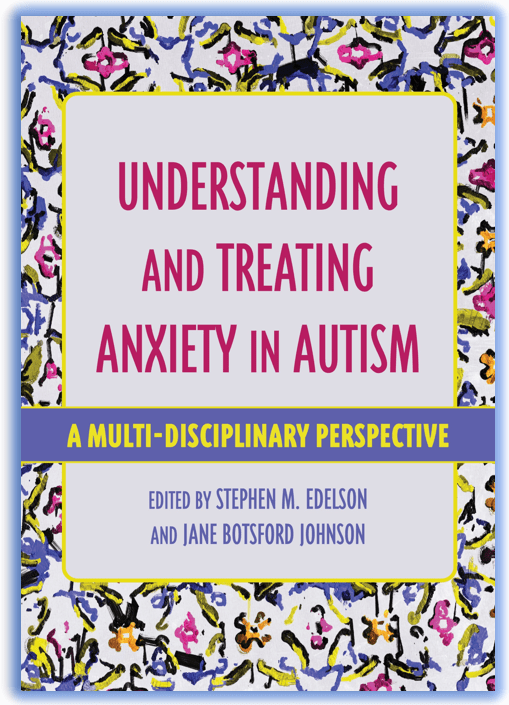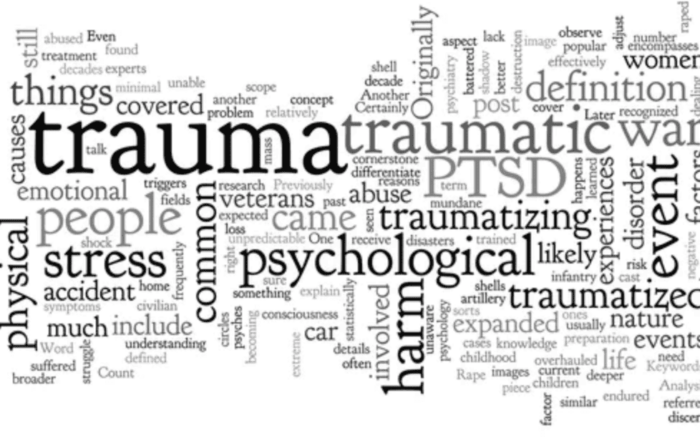 Pictured:
Pictured:
Editors Stephen M. Edelson and Jane Botsford Johnson
Understanding and Treating Anxiety in Autism, is now available from Jessica Kingsley Publishers. The book is edited by ARI’s executive director, Stephen M. Edelson, and past ARI Board member, Jane B. Johnson, and consists of chapters written by leading experts in the autism field. Understanding and Treating Anxiety in Autism summarizes the current perspectives and research on anxiety in autism including neurology, medical, immunology, gastrointestinal, nutrition, sensory, and behavioral.
Anxiety is a prevalent and often debilitating condition for individuals on the autism spectrum. This book promotes a multidisciplinary approach to intervention and treatment of the condition, providing a professional understanding of the underlying causes and available treatments.
With a foreward by David Amaral, PhD, and chapters co-authored by well-known advocates and pioneering researchers, contributors examine factors including sensory processing issues, sleep impairments, and the crossover between the autonomic nervous system and immune system. The book expands upon current areas of research, including immune activation and the role of environmental toxicants, dietary and nutritional support, the treatment of gastrointestinal disorders, and individualized methods of managing stress and anxiety.
Providing an invaluable resource for professionals and academics seeking further insight into anxiety and autism, this book explores contemporary research and sets the groundwork for the most effective methods of treatment for individuals of all ages.
You can order your copy directly from Jessica Kingsley Publishers.
What was the initial inspiration behind Understanding and Treating Anxiety in Autism?
We are seeing a lot of parents and teachers feeling overwhelmed right now. If they are just beginning to understand the relationship between anxiety and autism, what are some small initial steps they can take to create a less stressful environment?
Who do you think will benefit from Understanding and Treating Anxiety in Autism?
Treating Autism and Related Conditions in Adults
1 pm Eastern time, Wednesday, February 26, 2025 ARI board member Robert Hendren, DO, discusses approaches for appropriately supporting symptoms of Autism and related conditions in adults. The
Wellbeing Wins: Integrating Positive Psychology into the Autism Community
Free webinar at 1 p.m. Eastern time (US), Wednesday, September 25, 2024 About the speaker: Patricia Wright, PhD, MPH, is Executive Director of Proof Positive: Autism Wellbeing Alliance.
“School distress” rates are elevated among those with autism
Rates of “school distress”—or significant emotional distress related to attending school—are significantly elevated in children with autism spectrum disorders (ASD), according to a new study from the United Kingdom. Sophie Connolly and
“School distress” rates are elevated among those with autism
Rates of “school distress”—or significant emotional distress related to attending school—are significantly elevated in children with autism spectrum disorders (ASD), according to a new study from the United Kingdom.Sophie Connolly and colleagues
Sexual Victimization in Autism
In this article: Chronic maltreatment and sexual victimization Trauma and quality of life Risk Factors What can we do? A safer future Resources Despite evidence to the contrary, misperceptions of autistic
Stress and Anxiety Reduction with June Groden, Ph.D
Interview with June Groden, Ph.D. Dr. June Groden is considered one of the pioneers in the field of autism and developmental disabilities. Her primary areas of interest are stress and anxiety and procedures








